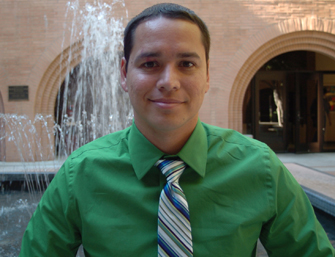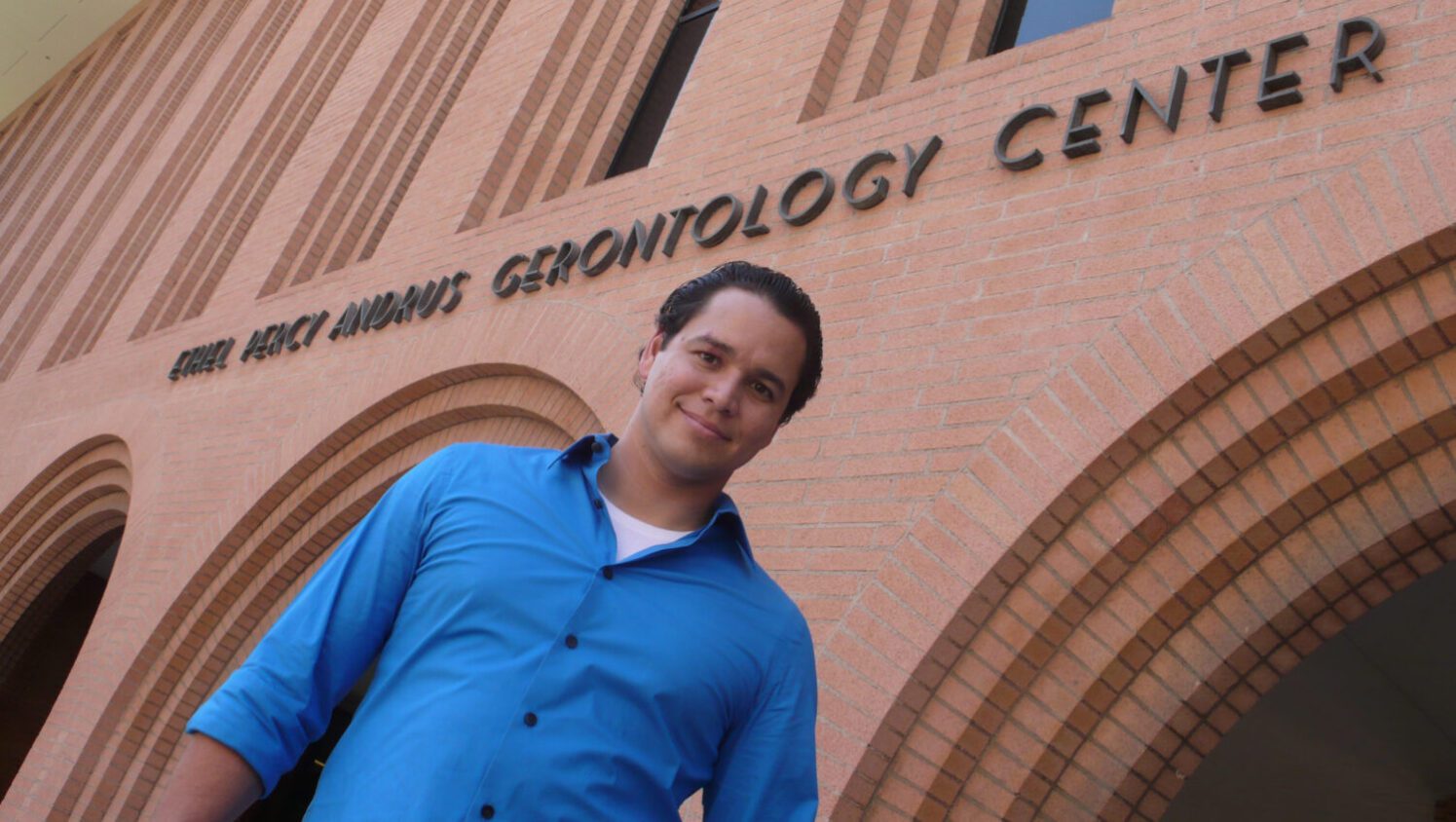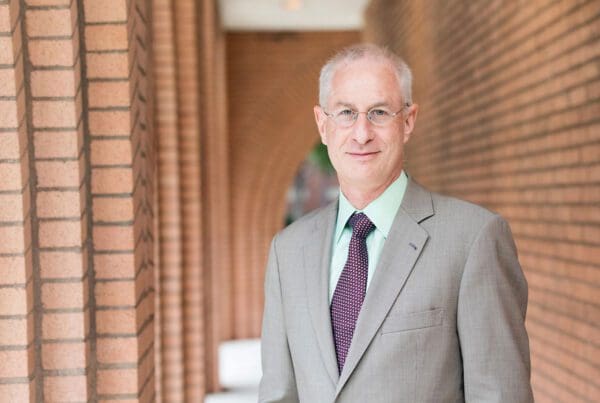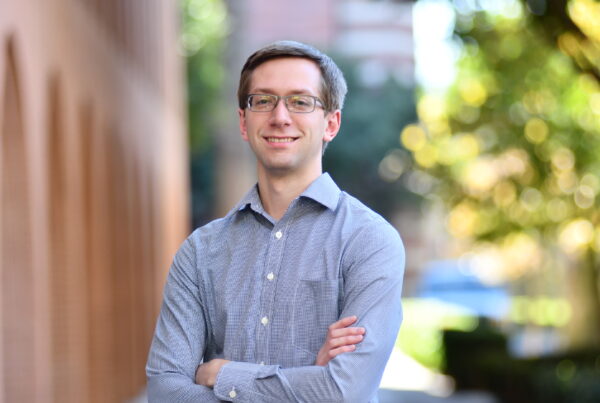
USC Leonard Davis School of Gerontology doctoral student Jeff Laguna (Photo/Trevor Nelson)
While there are many programs to manage pain, many seriously ill patients find that their pain is frequently unrecognized and untreated. While palliative care efforts are documented as an effective intervention, they function best when the caregiver or clinician is attuned as possible to the patient’s varying state. Obviously, this is a challenge for all involved.
“We decided to look at the use of a smartphone to monitor the pain and symptoms of seriously ill patients,” said Jeff Laguna, a USC Leonard Davis School doctoral candidate who worked closely with his advisor, USC Leonard Davis assistant professor Susan Enguídanos. “We wanted to empower patients, caregivers and the palliative care team with the latest technology to give a voice to their needs and how they can be met.”
Utilizing an interdisciplinary approach that involved the USC Leonard Davis School, the USC Viterbi School of Engineering, the USC School of Social Work and HealthCare Partners, Laguna and his team remotely monitored at-risk patients using the smartphone app, ManageMyPain.
The app allowed patients to describe pain characteristics, including intensity, location, character, timing and factors that either aggravated or alleviated the pain. Participants took 5-10 minutes to input their pain on a daily basis, and this data was transmitted to the research team.
“We found several potential barriers, including the ability of participants to use the touch screen successfully, read the font and navigate the phone and app in general,” Laguna said. “These barriers can be frustrating, but identifying them helps us make the app more user-friendly and successful for all potential users.”
By putting this powerful tool literally in the hands of patients, caregivers and the palliative care team, Laguna hopes that other researchers will follow his lead and design more technology for older adults and for all their changing needs. While pain management and palliative care places the focus on end-of-life, the opportunities are there to enhance the quality of life for older adults in every season and state of health.
“Digital aging has the potential to help everyone: older adults who can benefit from increased services and solutions as well as those who care for them and people who are looking to the future and their own aging,” Laguna said. “We found that older adults have an interest in learning new technology, especially if it’s intended to help their care, but there aren’t enough products for them yet. We’re calling for hardware and software innovations so we can best serve this population with this technology, and we’re looking to a wide variety of USC experts to make this dream come true.”





